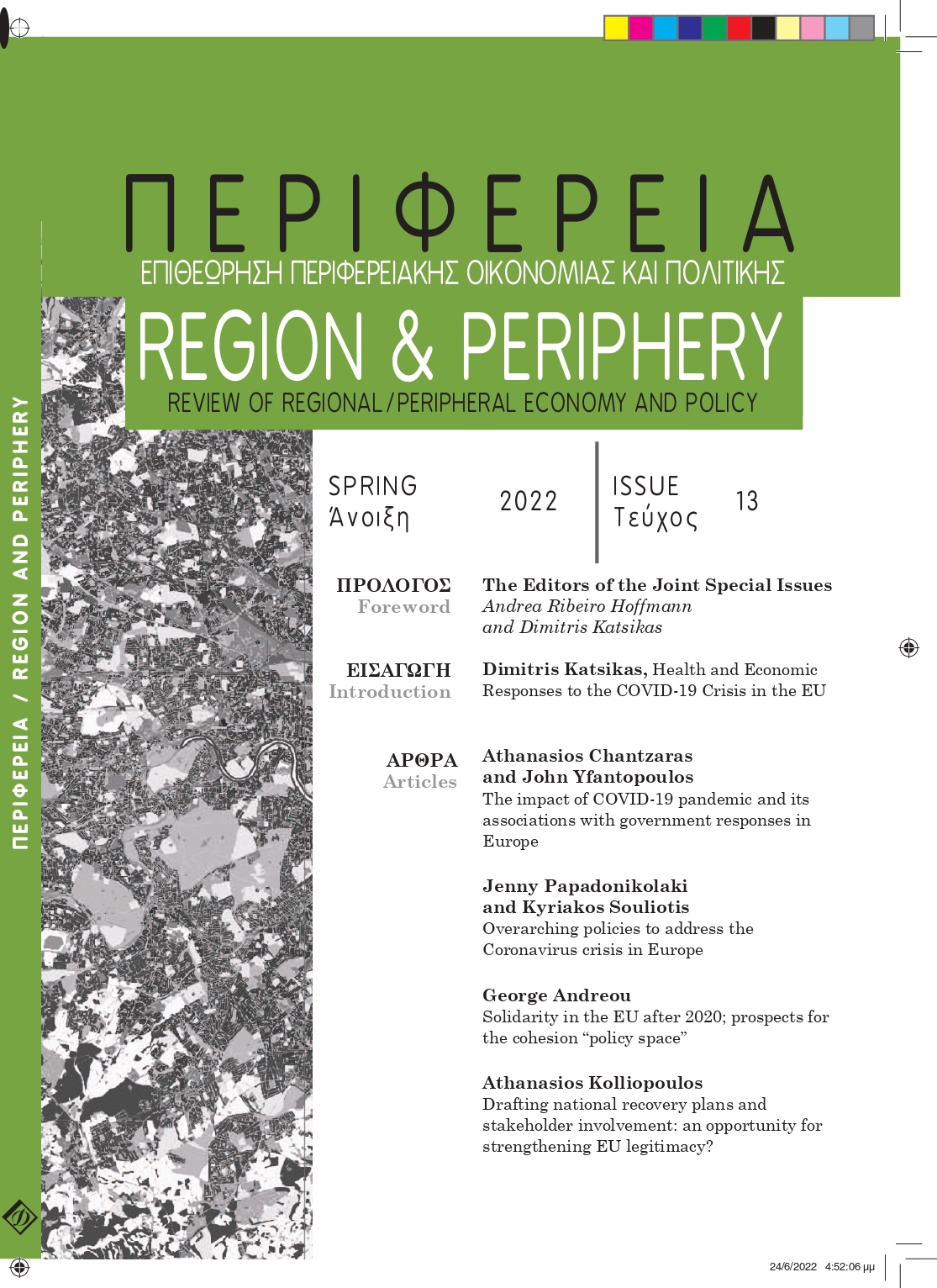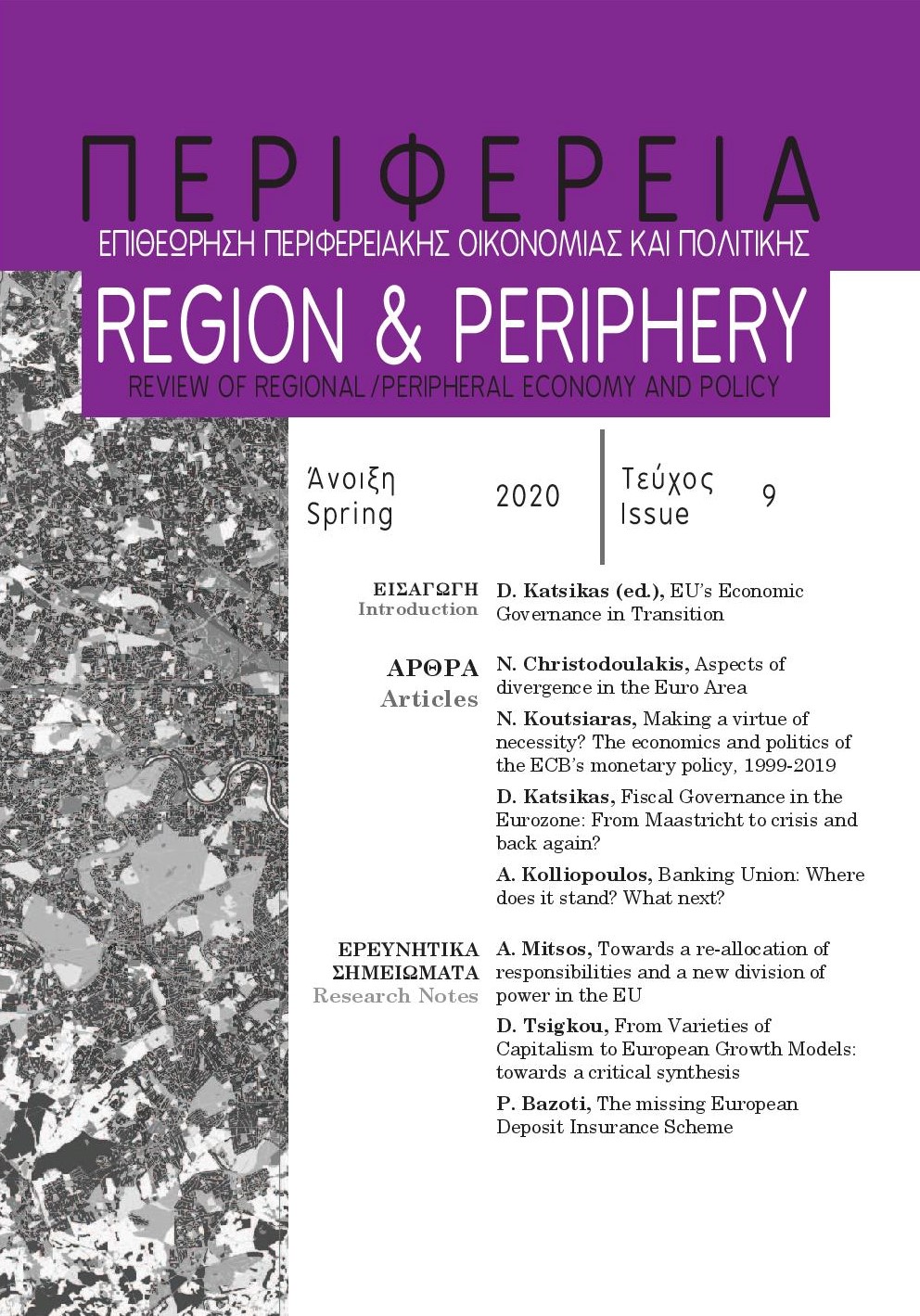Drafting national recovery plans and stakeholder involvement: an opportunity for strengthening EU legitimacy?
Abstract
The Recovery and Resilience Facility (RRF) is at the heart of Next Generation EU, Europe’s plan to tackle the economic fallout of the pandemic crisis. To obtain this support, national plans outlining structural reforms to be implemented by member states are to be submitted for assessment by the European Commission before being approved by the European Council. Accordingly, to effectively implement the structural reforms to be financed by the RRF, national governments and their constituents must show ownership over the process. While it should be in everyone’s interest to disburse recovery funds as soon as possible so as to reach a strong recovery effect, it is equally important to ensure enough time for public consultations with the relevant stakeholders and a successful reflection of input from the stakeholders in the national plans. However, drafting national recovery plans proved a laborious exercise, bringing back concerns over the EU democratic deficit. Consequently, a crucial question concerns whether the pandemic crisis is a proper opportunity to bridge the legitimacy gap of the EU, which has widened in the era of the EU’s economic crisis. In an attempt to answer this question, this paper provides an overview of the overall involvement of stakeholders in drafting national recovery and resilience plans based on information gathered from several official reports.
Article Details
- How to Cite
-
Kolliopoulos, A. (2022). Drafting national recovery plans and stakeholder involvement: an opportunity for strengthening EU legitimacy?. Perifereia | Regional Integration: Politics, Economics, Governance, 13(13), 91–108. https://doi.org/10.12681/rp.30755
- Section
- Research Articles

This work is licensed under a Creative Commons Attribution-NonCommercial 4.0 International License.
Authors who publish with this journal agree to the following terms:
· Authors retain copyright and grant the journal right of first publication with the work simultaneously licensed under a Creative Commons Attribution Non-Commercial License that allows others to share the work with an acknowledgement of the work's authorship and initial publication in this journal.
· Authors are able to enter into separate, additional contractual arrangements for the non-exclusive distribution of the journal's published version of the work (e.g. post it to an institutional repository or publish it in a book), with an acknowledgement of its initial publication in this journal.
· Authors are permitted and encouraged to post their work online (preferably in institutional repositories or on their website) prior to and during the submission process, as it can lead to productive exchanges, as well as earlier and greater citation of published work.




